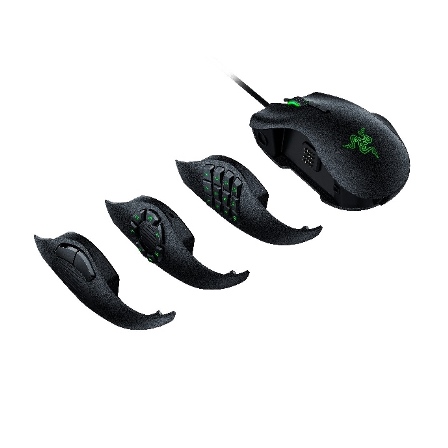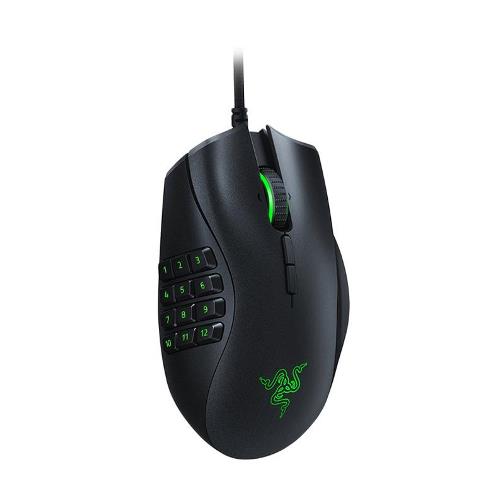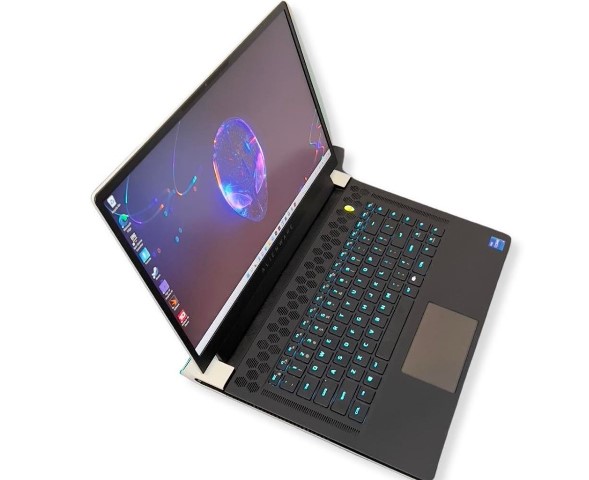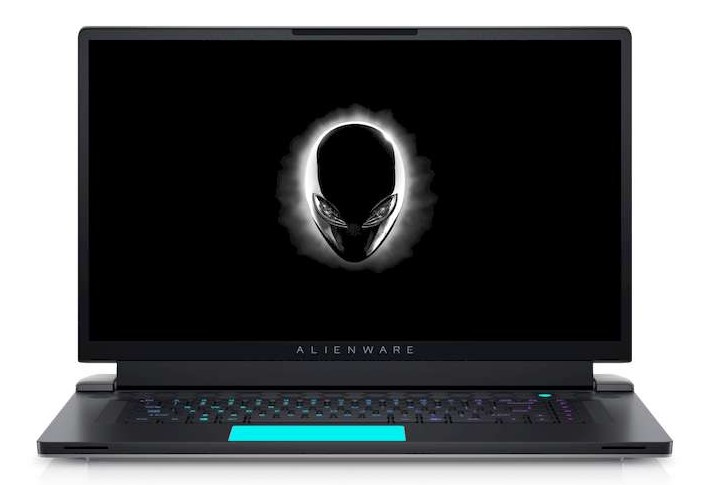Razer Naga Trinity review: a modular mouse for all uses
Several times improved, Razer’s famous Naga has so far existed in two versions. The first, named Naga Chroma (or Epic Chroma for its wireless version). Offers 12 buttons under the thumb and is therefore particularly suitable for MMO type games.
The second, called Naga Hex V2, reduces this number of buttons to 7. For a use corresponding better to Moba or hack’n slash type games.
Razer is now introducing the Naga Trinity, a modular mouse designed to adapt to all gaming genres.
Presentation
As we approach this test of the Naga Trinity, there is a strong desire to sum up this new modular mouse from Razer as follows the Trinity is both a classic Naga Chroma and a Naga Hex V2. But that would be to overlook what distinguishes it from the latter two.
Indeed, the Trinity takes advantage of the last optical sensor “5G” introduced with the DeathAdder Elite and inaugurates a new slice with two buttons. It is therefore in a way a mixture of 4 very different mice, thus fully justifying that we deepen the subject to give you a complete test of it.
Design of Razer Naga Trinity
In terms of design, we are on familiar ground, the Naga Trinity taking up every feature the lines of other Naga. We thus find a rather compact shape, a well rounded back (43 mm) and a certain width (74 mm) designed to better support the ring finger.
Related Post : Roccat Burst Pro Extreme Lightweight Review Software Update, Manual Guide
You can then let your hand rest entirely on the mouse, for more comfort. However, it remains possible to opt for a slightly more nervous grip.
The mouse not being too long (119 mm) and taking advantage of its two slices of elastomer inserts, providing good grip and to be lifted without difficulty. An important feature when we know that the Naga Trinity still displays 120 g on the scale.
Build Quality
In terms of build quality, nothing to reproach this Naga. Despite a modular design, nothing moves and the adjustments are impeccable; one could quite believe in a “normal” mouse, the left slice being perfectly integrated.

The matt plastic used offers a pleasant feel and is not too messy.
Buttons Naga Trinity
This principle of interchangeable slice is not new – recently. Corsair proposed it on its Glaive, for example -, but brings here a whole new dimension. Insofar as it completely modifies the organization of the buttons.
See Also : Logitech Ergo M575 Wireless mouse with track ball
While the 12 buttons on the edge corresponding to the original Naga are very practical for having a maximum of functions under the thumb.
No problem with the Trinity, just use the edge with a grip and two larger buttons. The last option is a good compromise between support and the number of buttons accessible with the thumb.
Software And Manual Guide
Software > Download
Precision
Razer has chosen an optical sensor for its Naga Trinity. A wise choice as this 5G sensor is performing. Already used in the DeathAdder Elite , the Lancehead Tournament Edition and the Basilisk , this PMW3389 manufactured by PixArt indeed supports speeds of up to 11.43 m / s, and accelerations of 50 g. Suffice to say that there is no risk of seeing it fail, even in the event of particularly sharp movements (currents in low sensitivity in shooting games, in particular).
Its sensitivity can reach 16,000 dpi, which is far more than necessary, even in the context of multiscreen use. Remember that at 16,000 dpi, a movement of 2 cm is enough to make the pointer travel the width of 3 Ultra HD screens. You might as well give up precision with such a setting; but who can do the most can do the least.
When it comes to surface recognition, optics dictate that we simply avoid glass and other transparent and reflective coatings. Apart from these specific materials, the sensor tolerates a wide variety of surfaces. However, we always recommend a good mouse pad, in order to improve the precision and the glide, while limiting at the same time the wear of the skates.
Conclusion
Well designed, the Naga Trinity does indeed combine the advantages of all the other versions of the wired Naga.


